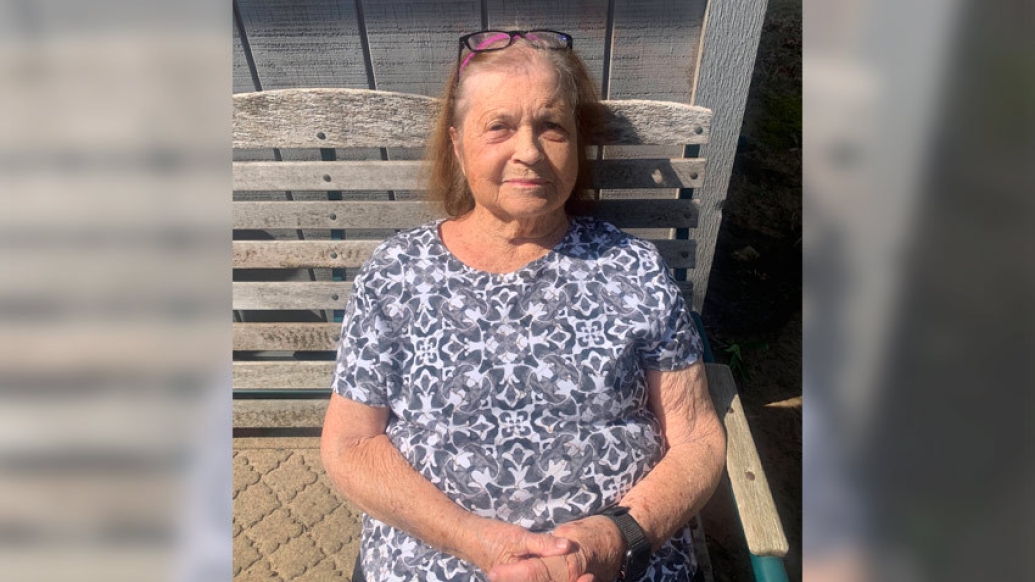The program is designed to reduce hospital readmissions by providing patients with specialized treatment and education.
3:35 PM
Author |

As a former school bus driver, 86-year-old Zelda Lucas has logged many miles on the road. And now that she's feeling "20 years younger," she's back behind the wheel, running errands and visiting family.
It wasn't long ago that the Petersburg, Michigan, resident says she was "ready to give up and die." But a meeting with Michigan Medicine cardiologist Matthew Konerman, M.D., and eight days as a patient with the Chelsea Inpatient Heart Failure Service turned her health and outlook around.
Lucas was diagnosed years ago with heart failure with preserved ejection fraction, or HFpEF, a type of heart failure in which the heart muscle is too stiff to fill properly with blood. Approximately four million Americans have HFpEF, which is typically associated with underlying conditions such as obesity, diabetes mellitus, high blood pressure and coronary artery disease, among others.
Patients with HFpEF often experience difficulty breathing, fatigue, chest discomfort and leg swelling. These symptoms are most often due to fluid retention that congests the tissues and lungs. This occurs as a result of the heart muscle not being able to pump enough blood to meet the body's nutrition and oxygen needs.
Declining quality of life
For years Lucas had been treated with diuretics to control excess fluid, but with her health and quality of life declining due to symptoms of extreme fatigue and difficulty breathing, she says she "didn't want to live anymore."
When a co-worker of her daughter recommended Konerman, Lucas agreed to see him.
"I met with Dr. Konerman and he said, 'I think you need to go to the hospital.' My son and I agreed," says Lucas.
Like Podcasts? Add the Michigan Medicine News Break on iTunes, Google Podcast or anywhere you listen to podcasts.
"When I first met Zelda Lucas, she was frail and in a wheelchair," says Konerman. "She had experienced months of difficulty breathing, which significantly impacted her quality of life. She was essentially homebound and was very weak. She had lost much of her strength and stability."
Finding hope
Konerman and his team understood the urgency of her situation.
"She needed a more aggressive treatment than what she had been receiving. I said to her, 'You've been living with this for several months and treatment so far hasn't been successful. We want to get you into the hospital where we can remove excess fluid efficiently and safely as well as improve your nutrition.'"
He urged her to invest one week of her life with the Michigan Medicine Chelsea Inpatient Heart Failure Service, where he serves as medical director.
Lucas' son, Nick, realizing the significance of his mother's declining health, was relieved to hear there was hope. "We could see her going downhill," he says.
Lucas was admitted to the Chelsea Inpatient Heart Failure Service on January 22 and spent eight days receiving individualized care from the Michigan Medicine medical team of physicians, nurses, pharmacists, social workers and nutritionists.
"The service is designed to provide heart failure patients with health monitoring, support and education — all with the goal of minimizing their need to be readmitted," says Konerman, noting that 30 days following discharge is a critical time for many patients. In Lucas' case, her fluid retention needed to be addressed by getting her on the right dosage of medication and proper nutrition to enable her to successfully return home.
A unique type of program
A key differentiator, says Konerman, is the program's multidisciplinary collaboration between internists, heart failure specialists, nurses and pharmacists to ensure patients receive the right doses of the medications proven to improve outcomes.
"For example, the program aims to not only adequately remove excess fluid but also identify an effective oral diuretic regimen to prevent fluid from building up again at home."
MORE FROM MICHIGAN: Sign up for our weekly newsletter
Prior to discharge, all patients in the program have five appointments scheduled within 30 days of discharge with nurse practitioners, pharmacists and physicians from the Bridges and Transitions Program at Michigan Medicine.
"Through a combination of face-to-face and virtual visits, along with 24-7 telemanagement nursing care, this post-discharge care model seeks to decrease readmissions for heart failure," says Konerman.
Lastly, through a new virtual approach to patient education, patients in the program are empowered to improve their self-care to get stronger and healthier.
Turning the corner
During her stay in the program Lucas lost 13 pounds of fluid and began feeling like herself again.
"The nurses, doctors and entire staff were wonderful," she says, adding, "I was ready to give up and die, but now I feel 20 years younger. I'm able to drive for the first time in many months. I'm living on my own and am starting to cook again."
Her son, Nick, couldn't agree more.
"Getting my mom into this program turned things around for her," he says, noting her drastic improvement in only eight days. "We have our mom back again."

Explore a variety of health care news & stories by visiting the Health Lab home page for more articles.

Department of Communication at Michigan Medicine
Want top health & research news weekly? Sign up for Health Lab’s newsletters today!





